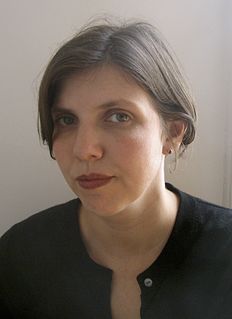A Quote by Katherine Paterson
The thing I have learned through the years is that one idea 'doth' not a novel make. A novel must be several seemingly unrelated ideas that somehow magically come together to create the fabric of the story.
Related Quotes
Let's get one thing clear right now, shall we? There is no Idea Dump, no Story Central, no Island of the Buried Bestsellers; good story ideas seem to come quite literally from nowhere, sailing at you right out of the empty sky: two previously unrelated ideas come together and make something new under the sun. Your job isn't to find these ideas but to recognize them when they show up.
a novel is not born of a single idea. The stories I've tried to write from one idea, no matter how terrific an idea, have sputtered out and died by chapter three. For me, novels have invariably come from a complex of ideas that in the beginning seemed to bear no relation to each other, but in the unconscious began mysteriously to merge and grow. Ideas for a novel are like the strong guy lines of a spider web. Without them the silken web cannot be spun.
The process for writing a picture book is completely different from the process of writing a chapter book or novel. For one thing, most of my picture books rhyme. Also, when I write a picture book I'm always thinking about the role the pictures will play in the telling of the story. It can take me several months to write a picture book, but it takes me several years to write a novel.
At last, after almost fifty years in the hopper, the most famous unpublished novel in America is in print. Who Shot the Water Buffalo? is a splendid story of comradeship in a time and place of constant peril, but it's Babbs's irrepressible exuberance and vast, affectionate good humor that make the story go. I love this novel.
I've made the decision to adhere to three general truths when it comes to my novels: There will be a love-story element to the story, the novel will be set in eastern North Carolina, and the characters will be likeable. Then, I make each novel unique through differences in voice, perspective, age and personalities of the characters, and of course, plot.
One easy mistake to make with the first novel is to expand the short story. Some things are better as a story; you cannot dilute things into a novel. I think the first hundred pages of a novel are very important. That's where you set things up: the world, the characters. Once you've set that up, it'll be much easier.
But to be perfectly frank, this childish idea that the author of a novel has some special insight into the characters in the novel ... it's ridiculous. That novel was composed of scratches on a page, dear. The characters inhabiting it have no life outside of those scratches. What happened to them? They all ceased to exist the moment the novel ended.
































